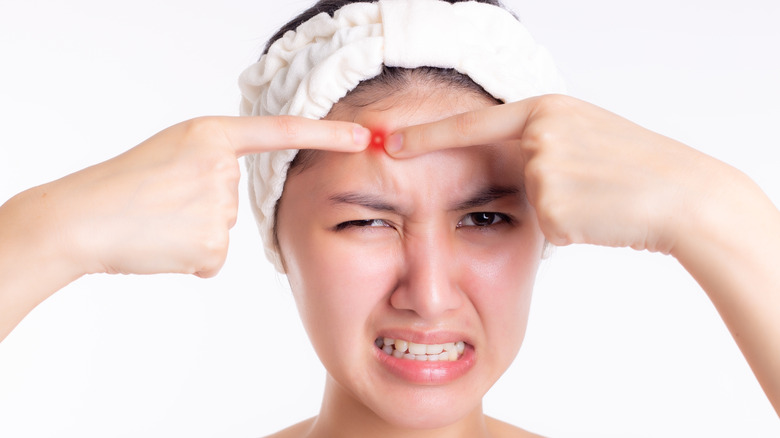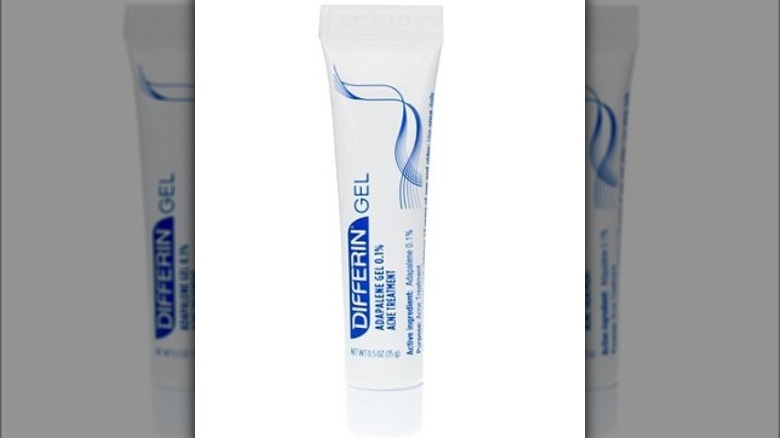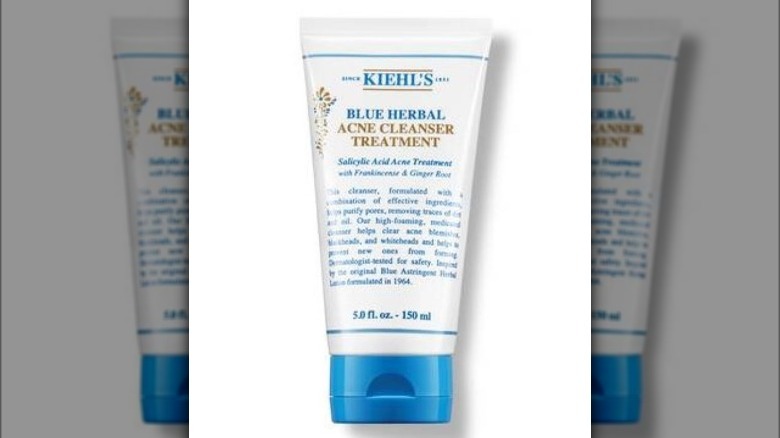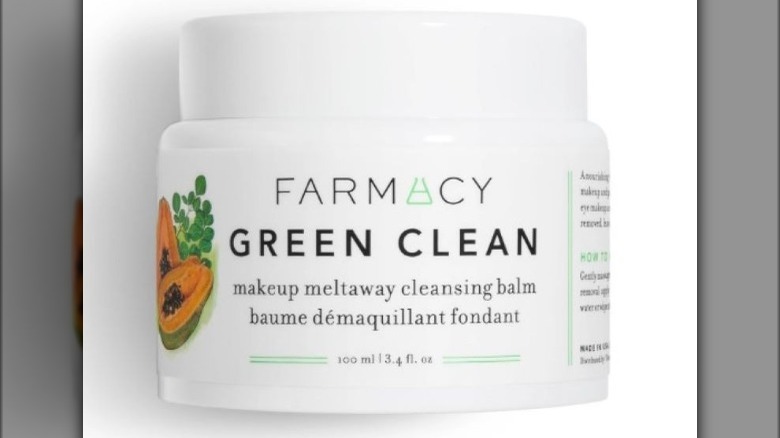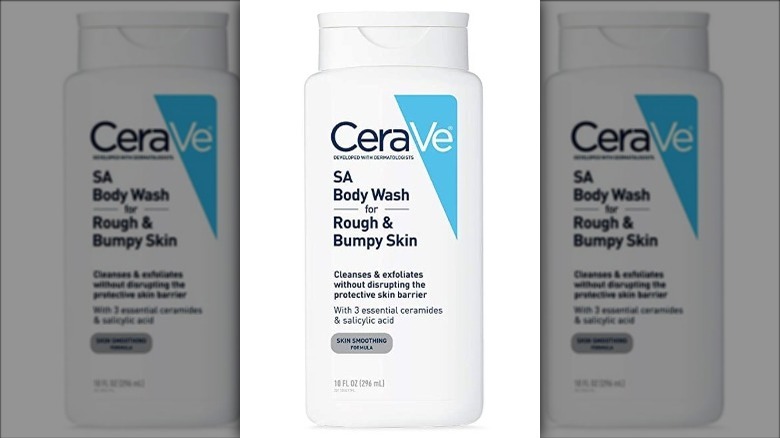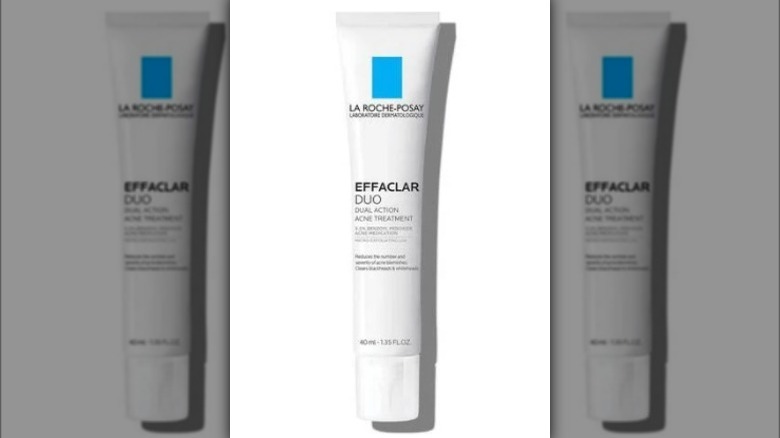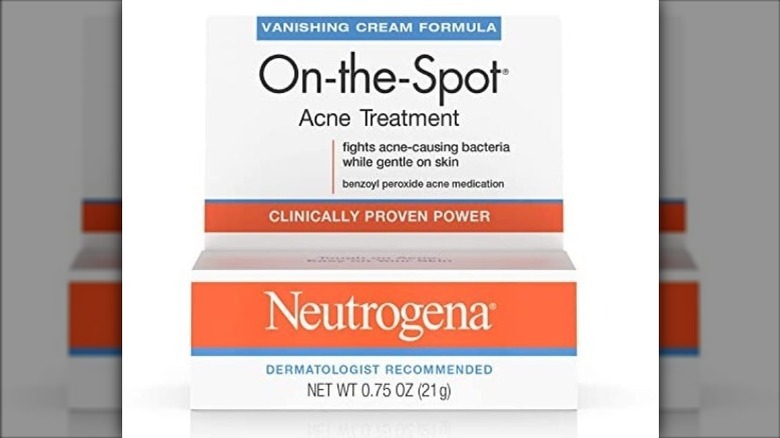Products That Will Actually Help Cystic Acne Caused By PCOS
We may receive a commission on purchases made from links.
While hormonal imbalance can cause women mood swings, random cravings, and weight gain, those symptoms usually goes away once you are done with your period. Those few days can feel like torture, but the fact that those unexplainable bouts of irritability, accompanied by annoying pimples, generally go away with time gives hope to many.
There are many types of acne, and according to Healthline, cystic acne is "the most serious" because they result from the formation of cysts deep within the skin. You can tell you have cystic acne because they are more stubborn, bumpy, often painful, and filled with pus. You can be prone to cystic acne if you have oily skin, as anything from dirt to bacteria can clog your pores. However, it is a whole other story if you have cystic acne caused by polycystic ovarian syndrome (PCOS).
According to Mayo Clinic, PCOS is a hormonal disorder among women of childbearing age caused by an excess level of the male hormone androgen or genetics, and it may cause ovarian cysts. The women can have irregular and/or heavy periods and struggle with infertility, and to top it all off, they can also have severe acne such as the cystic kind. The best way to treat cystic acne is to treat the root of the problem by taking prescription medication, as over-the-counter (OTC) medication might only treat the surface-level problem.
However, you can use certain products to alleviate the issue of PCOS-induced cystic acne. Here are some suggestions.
Differin Adapalene Gel 0.1% Acne Treatment
If you want something to treat painful cystic acne, you need to try Differin (via Insider). Differin Adapalene Gel 0.1% Acne Treatment is the only prescription-grade retinol available in beauty aisles that is available without a prescription that "unclogs pores and prevents breakouts." However, it can cause redness and flaky skin. It is also not recommended for use if you are pregnant or nursing.
In fact, this acne treatment is so loved by dermatologists that Dr. Joshua Zeichner told The Strategist, "Differin should be the first OTC product someone with cystic acne should use." He recommends it to his patients because it can also help with inflammation and discoloration and prevents new acne from popping up.
Board-certified dermatologist Shereene Idriss told Teen Vogue, "It helps promote cellular proliferation, and collagen production, minimize clogged pores and smoothening out fine lines and wrinkles along the way." Adapalene is a "less-irritating synthetic retinoid," so it is perfect for treating stubborn acne while helping with signs of aging. It is also a winner of Allure's Best of Beauty Awards.
Kiehl's Blue Herbal Acne Cleanser Treatment
According to Healthline, you can also get an anti-androgen prescription to reduce the level of testosterone, which may "increase sebum and skin cell production" and result in cystic acne when you have PCOS. When choosing OTC medication for acne, they recommend looking for benzoyl peroxide, salicylic acid, or sulfur.
Allure recommends Kiehl's Blue Herbal Acne Cleanser Treatment because it has glycerin to hydrate and ginger root extract to soothe the skin. New York City-based dermatologist Michelle Henry told Allure, "It contains salicylic acid to unclog pores and reduce inflammation, as well as frankincense, which is a natural astringent that helps reduce sebum production."
This is a one-stop shop to take care of clogged pores, inflammation, and excess sebum — all of which can contribute to cystic acne. According to Kiehl's, this paraben- and fragrance-free cleanser helps you achieve clearer skin by preventing new acne. It can also treat whiteheads and blackheads.
Farmacy Green Clean Makeup Removing Cleansing Balm
Here's the thing with cystic acid: It doesn't just appear on the skin's surface. It is caused by hormonal imbalance, so it starts from deep within your skin, and the treatment has to penetrate your skin more. And when you are using intense treatment, you have to remember that you might be irritating or drying your skin in the process.
Board-certified dermatologist Dendy Engelman told Allure, "Since cystic acne happens underneath the skin's surface, it is likely that you will be drying out the skin, irritating the surrounding area, and exacerbating the infection." Therefore, you should use a gentle cleanser to clean the dirt and oil off your skin.
Insider recommends Farmacy Green Clean Makeup Removing Cleansing Balm because it has bergamot oil that helps with inflammation and gently removes all traces of makeup and dirt without drying your skin. According to Farmacy Beauty, the papaya enzymes help to keep your pores clean.
CeraVe Body Wash with Salicylic Acid
Salicylic acid is one of the most common ingredients used to fight acne. Dr. Marisa Garshick, clinical assistant professor of dermatology at NYP-Cornell, told The Strategist, "The salicylic acid helps to unclog pores and eliminate dead skin cells, leaving the skin looking clear." And, cystic acne is more common on the face, but can appear on your body as well. So, the value of salicylic acid in cystic acne treatment should not be undermined.
To treat cystic acne on your body, Greatist speaks highly of CeraVe Body Wash with Salicylic Acid because the salicylic acid can help with clogged pores and exfoliates your skin to fight existing cysts and prevent new ones from developing. It is affordable, and many reviewers noticed a reduction in cystic acne on their backs after use.
La Roche-Posay Effaclar Duo Dual Acne Treatment
While salicylic acid is commonly used to treat acne, another powerful acne fighter is benzoyl peroxide. This FDA-approved ingredient has been treating acne for more than 85 years, and LA-based board-certified medical and cosmetic dermatologist Christine Choi Kim told Good Housekeeping, "It's antibacterial, anti-inflammatory, keratolytic [meaning it breaks up the top layer of dead skin cells] and comedolytic [meaning it dissolves blackheads and whiteheads]." Dr. Kim added it is "particularly great at treating inflammatory cystic acne," though it can help with any kind of acne.
One of the best benzoyl peroxide products is La Roche-Posay Effaclar Duo Dual Acne Treatment, recommended by Women's Wear Daily. This treatment is apparently great because it is "potent and fast-acting" and has additional Lipo Hydroxy Acid that can infiltrate deep into your skin to combat cystic acne. According to Greatist, it is safe to use during pregnancy.
Neutrogena On-the-Spot Acne Treatment
Since salicylic acid and benzoyl peroxide both help treat cystic acne, there is a product that uses the power of both and one more. It is Neutrogena On-the-Spot Acne Treatment, which also has hydrocortisone. Regarding this 3-in-1 treatment, Dr. Joshua Zeichner, who is Mount Sinai's Director of Cosmetic and Clinical Research in Dermatology and an Associate Professor of Dermatology, told Byrdie, "Benzoyl peroxide lowers levels of acne-causing bacteria, hydrocortisone cream reduces inflammation, and salicylic acid removes excess oil to dry out a pimple,"
Cystic acne can be painful and annoying. It can be tempting to pick on it or squeeze it to make it disappear, but unfortunately, it is not recommended due to the severity of the issue. It is also best not to over-exfoliate your skin as it might cause more irritation. When looking for products, try to use non-comedogenic skincare and makeup products as they will not clog your pores because that can make your skin worse (via Elle UK). Another tip to keep in mind is to not use "overly drying products," as they might aggravate the irritation more since the treatments used tend to dry your skin already.
If none of the treatments are helping you with cystic acne, it will be wise to consult a physician, but these products seem worth a shot before deciding to go the prescription route.
